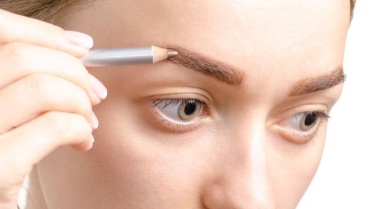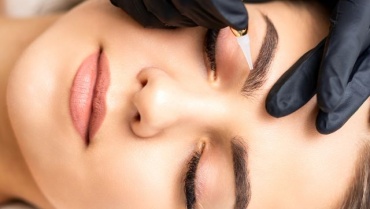We often think of global warming as a distant threat, only limiting it to melting ice caps, rising seas, and extreme weather.
But what if I told you it’s doing more than just heating the planet?
Yes.
Global warming could be quietly wreaking havoc on your skin, hair, and overall beauty.
And the overall impact?
Research shows that the impact of this warming is accelerating the aging process without you even realizing it.
Global Warming Is More Than Just Weather change.
Its messing with your skin too.
From UV rays penetrating deeper into your skin to pollution clogging your pores, the effects of climate change are closer than you think—and they’re showing up in your mirror.
As temperatures rise and environmental conditions worsen, your beauty is under siege in ways that most skincare routines can’t keep up with.
But don’t panic!
Understanding how heat, pollution, and UV exposure impact your skin and hair is the first step in fighting back.
Keep reading to learn what’s happening beneath the surface—and discover the simple yet powerful steps you can take to protect your glow in a warming world.
What is Global Warming?
Global warming results from the long-term rise in Earth’s average surface temperature.
The temperatures may raise primary due to human and natural activities like burning coal, oil, natural gas or natural factors like volcanic eruptions and solar activities.
These human and natural activities release greenhouse gases. I believe you’ve heard of carbon dioxide (CO₂), methane (CH₄), and nitrous oxide (N₂O) into the atmosphere.
These gases in return, trap sun’s heat, creating a “greenhouse effect” that warms the planet earth.
Over the past century, global temperatures have risen unprecedentedly, resuling in various environmental changes, including melting polar ice caps, rising sea levels, more frequent heatwaves, and shifts in ecosystems and weather patterns.
Global warming is a major driver of climate change, encompassing a broader range of environmental disruptions.
But the big question is…
How Does Global Warming Mess Up Your Beauty?
Global warming can mess up your beauty in several ways. In fact, rising temperatures, increased UV radiation, and pollution create a cocktail of stressors that accelerate aging, dehydrate your skin, and leave your hair dull and brittle.
The heat triggers excessive sweating and oil production, while environmental pollutants penetrate deeper into your pores, causing breakouts, irritation, and uneven skin tone.
In short, the changing climate isn’t just altering the world around you.
Here is how it’s silently reshaping your reflection in the mirror.
1. Accelerated Skin Aging (Photoaging)
Global warming may accelerate skin aging through Increased UV Radiation.
With global warming, the thinning ozone layer allows more harmful UV rays to penetrate and reach the earth.
Prolonged UV exposure can cause wrinkles, fine lines, pigmentation, and a loss of skin elasticity due to the breakdown of collagen.
Research in dermatology shows that UV exposure accounts for about 80% of visible skin aging. Heat can also exacerbate the effects of UV-induced skin damage.
2. Dehydrated Skin
You may also experience skin dehydration due to Impact of Heat. High temperatures increase transepidermal water loss (TEWL), leading to dehydrated, dry, and flaky skin.
Recent research, indicate that environmental heat reduces the skin’s ability to retain appropriate amount of moisture, resulting in dryness and increased sensitivity.
3. Increased Sebum Production and Acne
Hotter climates stimulate the sebaceous glands, leading to excess oil production.
Combined with sweat, this can clog pores, causing acne and breakouts. Studies confirm a rise in acne cases in tropical and hotter regions due to these environmental factors.
4. Pigmentation and Dark Spots
Global warming may also be responsible for dark spots due to Melanin Response.
Why?
Heat triggers melanocyte activity, which can cause hyperpigmentation and uneven skin tone.
Scientific Data published in JAMA Dermatology found that heat exposure alone (without UV) can induce pigment production in individuals prone to melasma.
5. Weakened Skin Barrier
Constant exposure to heat, combined with pollution (another byproduct of global warming), weakens the skin’s protective barrier. A compromised skin barrier leads to increased sensitivity, redness, and irritation.
6. Hair Damage
Do you know global warming Affects your Hair and Scalp? Excessive heat can lead to dehydration of the scalp, making it prone to dandruff. Hair strands may also lose moisture, becoming brittle and more prone to breakage. In fact, some small studies show that Heat and UV radiation have been shown to weaken keratin bonds in hair, resulting in reduced strength and shine.
6. Heat-Related Skin Conditions
- Conditions like Prickly Heat and Eczema: Prolonged heat exposure can cause sweat duct blockages (prickly heat) or worsen inflammatory skin conditions like eczema.
- Scientific Correlation: Dermatological studies confirm higher incidences of heat-induced rashes in warmer climates.
7. Oxidative Stress
- Free Radical Damage: Global warming increases air pollution, which contains free radicals. These molecules attack skin cells, causing premature aging, dullness, and inflammation.
- Evidence: Studies link pollution-related oxidative stress to chronic skin conditions like dermatitis and premature skin aging.
8. Faster Degradation of Beauty Products
- Impact of Heat on Cosmetics: Rising temperatures can alter the stability of skincare and makeup products, reducing their effectiveness.
- Research Finding: Heat and humidity can lead to product separation, bacterial growth, and reduced shelf life.
9. Psychological Effects on Beauty
- Stress and Inflammation: The psychological toll of climate change-related stress can trigger inflammatory skin conditions like rosacea, psoriasis, and acne.
- Supporting Research: Chronic stress has been linked to cortisol spikes, which exacerbate skin issues and hair loss.
How to Protect Your Beauty from Global Warming
- Sunscreen: Use broad-spectrum SPF daily, even on cloudy days.
- Hydration: Stay hydrated and use products with hyaluronic acid and ceramides to lock in moisture.
- Antioxidants: Incorporate vitamin C, E, in yourskin care routne. also take alot of green tea-based products to fight free radical damage.
- Climate-Friendly Skincare: Opt for formulations that are lightweight, non-comedogenic, and suited for humid climates.
- Protect Hair: Use heat protectant sprays and scalp treatments to combat dryness and sun damage.
- Eco-Conscious Choices: Reducing your carbon footprint contributes to slowing global warming and indirectly benefits your skin and hair.
Conclusion
Global warming may feel like a distant issue, but its impact on your beauty is closer than you think. Continues exposure to UV rays may cause skin aging, weaken your hair and dehydrate your complexion.
But the good news?
You can fight back. Incorporate protective measures like sunscreen, antioxidants, and hydration into your beauty routine while also making eco-conscious lifestyle choices, you can safeguard your glow and contribute to a healthier planet. After all, protecting your beauty starts with protecting the world around you—because both deserve to thrive.




